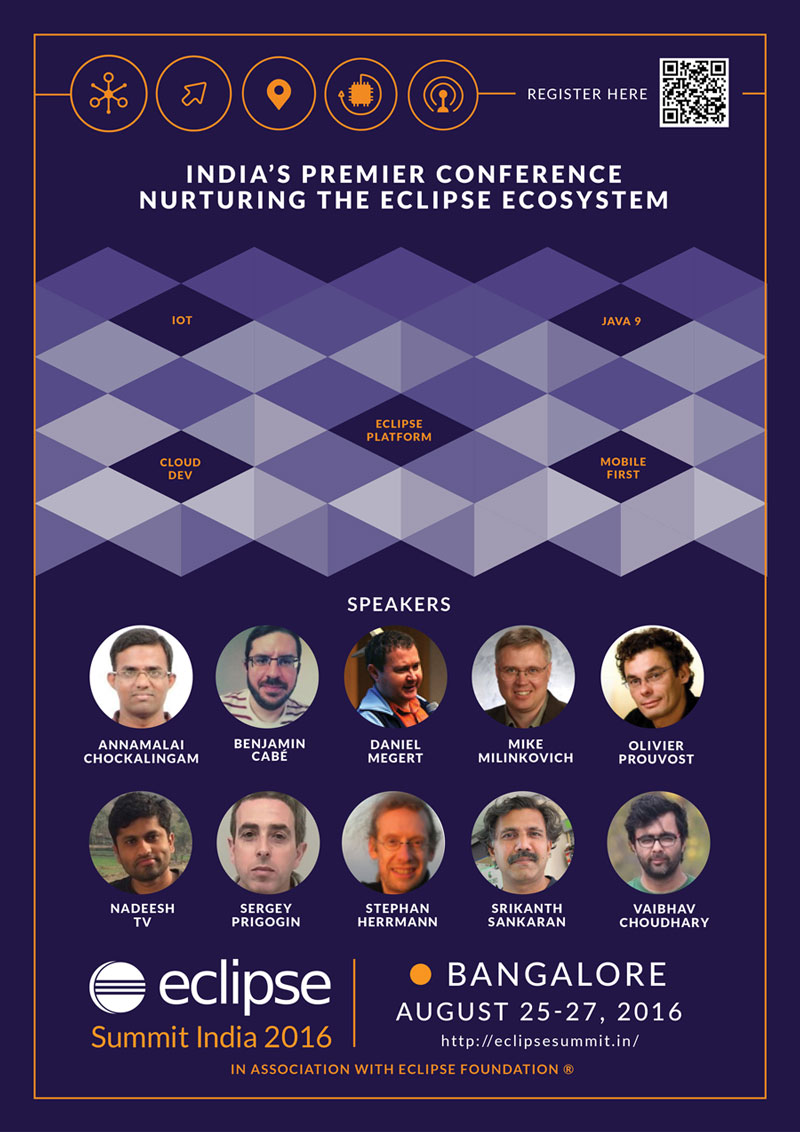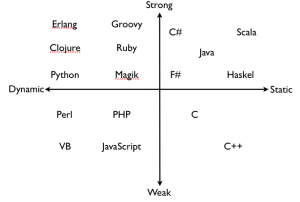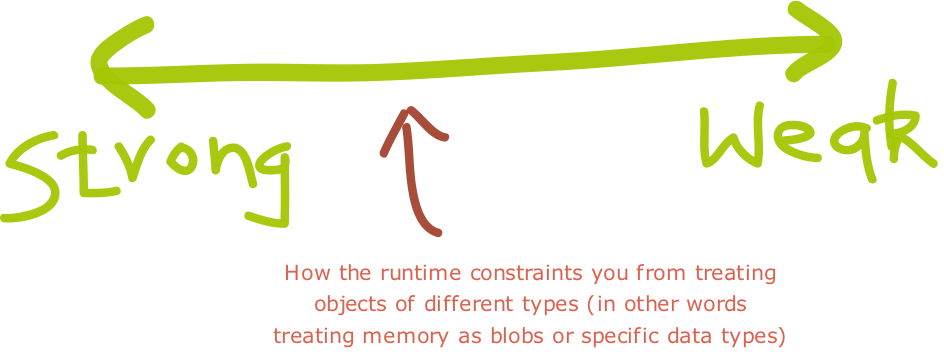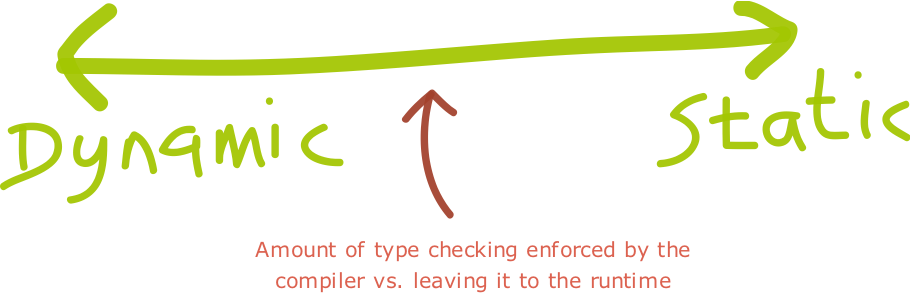Eclipse Summit India 2016 – by the community for the community!
Friday, August 5th, 2016Year 2016 is special for Eclipse users and community in India – we have the first ever conference focused on Eclipse Technologies, Eclipse Summit India, scheduled for Aug 25th to 27th in Bangalore at the Hotel Chancery Pavilion. Eclipse Summit India is being organized in collaboration with the Eclipse Foundation and will feature some of the best speakers from the past EclipseCon conferences around the world.
In 2010, we organized the first “Eclipse Day” – a day for the Eclipse community in Bangalore to get together and share expertise. We still remember that day at a small but cozy hotel on Infantry Road in Bangalore, when we kicked off the very first “Eclipse Day” in India. We followed the tradition in 2011, when SAP came forward to organize it in their campus. There were two more Eclipse Day editions in Bangalore in subsequent years – one organized at IBM and the other one at BOSCH. Each year we raised the bar in terms of content as well as participation. Thus the idea of Eclipse Summit was born!
The conference is spread across 3 days – Thursday, Friday and Saturday. Day-1, Thursday, is dedicated for pre-conference paid workshops. We have lined up 4 workshops by technical leaders in Eclipse space in some of the key Eclipse technologies – Eclipse IoT, Eclipse e4 Platform, Eclipse JDT and Eclipse Modeling Framework. The next two days are dedicated for conference tracks – we have two tracks each on Friday and Saturday. On each of the days, we kick off the proceedings with keynotes by thought leaders in the Industry.
On Friday, we are privileged to have Mike Milinkovich, Executive Director of Eclipse Foundation deliver the Keynote. On Saturday, we have two keynotes – Sumit Rao, VP of Engineering at Cerner Corporation, as the first keynote speaker and Viral Shah, co-creator of the Julia Language as the second keynote speaker. You can find the complete program here: https://confengine.com/eclipse-summit-2016/schedule/rich
Friday Aug 26th, we have two tracks – one focusing on Language Runtime (Java, Node.js, Mobile) and the other on Eclipse IoT Technology. We are fortunate to have leaders from each of these areas – Srikanth Sankaran, whose talks at past EclipseCon were rated amongst the best, will take us through the evolution of Java beyond Java-9, while Benjamin Cabé, Eclipse IoT expert at Eclipse Foundation will unveil the power of Eclipse IoT technologies. These talks are followed by a variety of talks and demonstrations that will expose you to the latest developments and trends in these areas.
On Saturday, the event continues with the focus on language technologies in one of the tracks, while Eclipse Platform focus on the other track. In the language track, Stephan Hermann, Java language guru, will take you through the dynamism in Java language while in the platform track, we have Prouvost, an expert on Eclipse e4 Platform unraveling the mystery of e4. Don’t know what e4 is? Well, now you have a reason to not miss this!
Eclipse Summit India is a conference organized by the Eclipse community for the community. Organizers have done their bit in lining up some of the eminent speakers, who are experts in their own domains. Now it is your, Eclipse community’s – turn, to contribute to it by actively participating to make it a success. Eagerly looking forward to meet you all at the conference!
We’ve last few seats left, register here: https://confengine.com/eclipse-summit-2016/register






